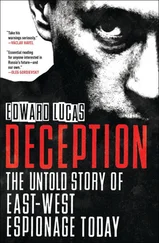Yet transparency and journalistic freedom do not trump all other considerations. Secrets may be so sensitive that journalists have no business exposing them (I have come across some of those too). Journalists may not realise the sensitivity of the secrets they have obtained: officialdom needs some kind of recourse (such as Britain’s D-Notice system) to advise the media about how to make disclosures less damaging. Journalists have a duty to their readers—but they are citizens too. Their safe and comfortable lives, and those of their fellows, depend on the proper functioning of the state. They should not take this for granted.
A healthy competition between officials who want to keep secrets and journalists who try to find them out is the hallmark of a democracy. My side winning this contest can involve notional or real breaches of the law, which may in turn expose journalists and their sources to the risk of prosecution. That is part of the job: a journalist who wants to invoke a public-interest defence in breaching secrecy has to be willing to plead his case before a judge and jury if necessary. If convicted, he will hope that political pressure will bring a pardon, or that history will vindicate him. We journalists do not enjoy absolute statutory immunity, nor should we. Nobody elected us. We make mistakes, and if they are bad ones—reflecting recklessness or malice—we should expect to suffer consequences. In short, both sides in this contest between truth and secrecy need to be guided by their sense of broader responsibility. Not every breach of official secrets deserves prosecution. And not every official secret deserves to be exposed.
Some of the accusations made against the Snowden camp are silly. It is not disloyal for journalists to try to expose state malfeasance. Nor is wrong for them to profit from their discoveries. Good journalists with good skills and good sources get good information, and if they are good at analysing and explaining it, they deserve (and may even get) good money.
Finally, worries about the future of privacy in an age of limitless electronic storage, powerful algorithms and extraordinary processing power are understandable. My forthcoming book Cyber-phobia [5] To be published by Bloomsbury in 2015.
deals in detail with how our habits and attitudes need to evolve to match the rapid change of technology we use in our daily lives. In brief, my argument is for concern rather than panic. Society has evolved in the past in response to new technologies and the benefits and threats they bring. It will do so in the future too. We will find new ways of behaving, just as we have with cameras, cars, telephones and personal computers. We will need to change some laws and establish new institutions. It will be uncomfortable for everyone but it is a surmountable problem.
That broad topic bears on this e-book too. The intelligence agencies, like everyone else, are grappling with new capabilities, vulnerabilities and constraints. The American constitution, with its admirable prohibition of arbitrary searches and seizures, was not designed for the digital age, which allows large amounts of information to be stored, and sorted rapidly and repeatedly by many remote investigators. The Smith v Maryland Supreme Court judgment of 1979, which says that expectations of privacy do not apply to dialled telephone numbers, did not foresee the ability of the authorities to warehouse such material in colossal amounts and search it automatically.
In sufficient quantities and in the right context, meta-data (for example the time, duration and direction of a phone call) can be more revealing than its content. The latter requires a search warrant. The former does not. Similarly the American distinction between citizens (constitutionally protected) and foreigners (fair game) is impractical and outdated when data crosses and re-crosses national frontiers. The need to rely on (and to arm-twist) private internet, technology and telephone companies creates new problems and dilemmas. In particular, weakening commercial cryptography standards, or finding vulnerabilities and keeping them secret, for example, may bring immediate gains in terms of intelligence collection, but—if exposed—strategic losses in terms of stoking distrust of America as a guardian of global security standards.
Legal challenges on these issues in America are under way as I write this e-book and will doubtless reach the Supreme Court eventually. Political controversies are bubbling too. The presidential Review Group on Intelligence and Communications Technologies mulled how America and other countries should manage their security and intelligence agencies in the digital age (some of its recommendations were sensible, others in my view unworkable or dangerous). President Obama on January 17th announced some modest and largely cosmetic changes to the NSA’s remit, but has broadly endorsed its activities and approach. [6] http://www.lawfareblog.com contains excellent analysis of these issues, especially by Benjamin Wittes. See also http://www.nytimes.com/2014/01/18/us/politics/obama-nsa.html
Ultimately, voters will have their say, in America and in other democracies too. But it does not seem that voters wish to destroy current intelligence capabilities, or to rewrite the statute book to make privacy inviolable always and everywhere, and at whatever cost, as some Snowdenistas seemingly want.
Despite sensationalist, ill-informed and sometimes misleading commentary in much of the media, public opinion in Britain and America seems broadly to agree with the proposition that releasing state secrets damages national security. In Britain, for example, 42% of those asked in a poll last year thought the security services had broadly the right powers; a further 22% thought they should have more. [7] http://www.langerresearch.com/uploads/1155a5NSAandSnowden.pdf . Another poll of young Americans shows a quarter backing Snowden, a quarter condemning him, and fully a half undecided: http://www.economist.com/news/united-states/21592654-revelations-about-cyber-espionage-dismay-barack-obamas-most-loyal-fans-snooper-blooper
The NSA and associated organisations are huge. Distinguishing the communications of terrorists and other adversaries from the innocent data of innocent Americans is tricky. Things do go wrong. In the ‘LOVEINT’ scandal a small number of NSA officials were found to have abused their position to snoop on people of interest in their private lives. They were disciplined. I think they should have been fired and prosecuted. Corrupt, self-interested intelligence officers are as big a threat to our freedom, or even a bigger one, as corrupt, self-interested police or judges. Their numbers may be tiny, but that is no reason for complacency.
Leaving aside wilful individual wrongdoing, it is clear that the NSA has also over-reached. Since 2011 some 56,000 e-mails of ‘US persons’ have been improperly read, a judgment from the FISA court reveals. But it is worth noting, first, that this was a list of errors which the NSA itself logged and reported—hardly the sign of a systematic cover-up or intentional abuse. Second, as a share of total e-mail traffic, measured in many billions, the number is vanishingly small. At other points the FISA court has also complained about the scope of the NSA’s collection of meta-data, about the way in which it is accessed, and about the level of authorisation sought. Yet on reading the (mind-numbingly long) rulings from the court, it is clear that the system is broadly working. The NSA makes mistakes. It reports them. The court finds flaws in the agency’s conduct and slaps it down (in sometimes stinging language). [8] See for example http://www.dni.gov/files/documents/1118/CLEANEDPRTT%202.pdf
Procedures change. Politicians react. Snowdenistas may not like the system, but even before their disclosures, its checks and balances were operating broadly as intended.
Читать дальше












